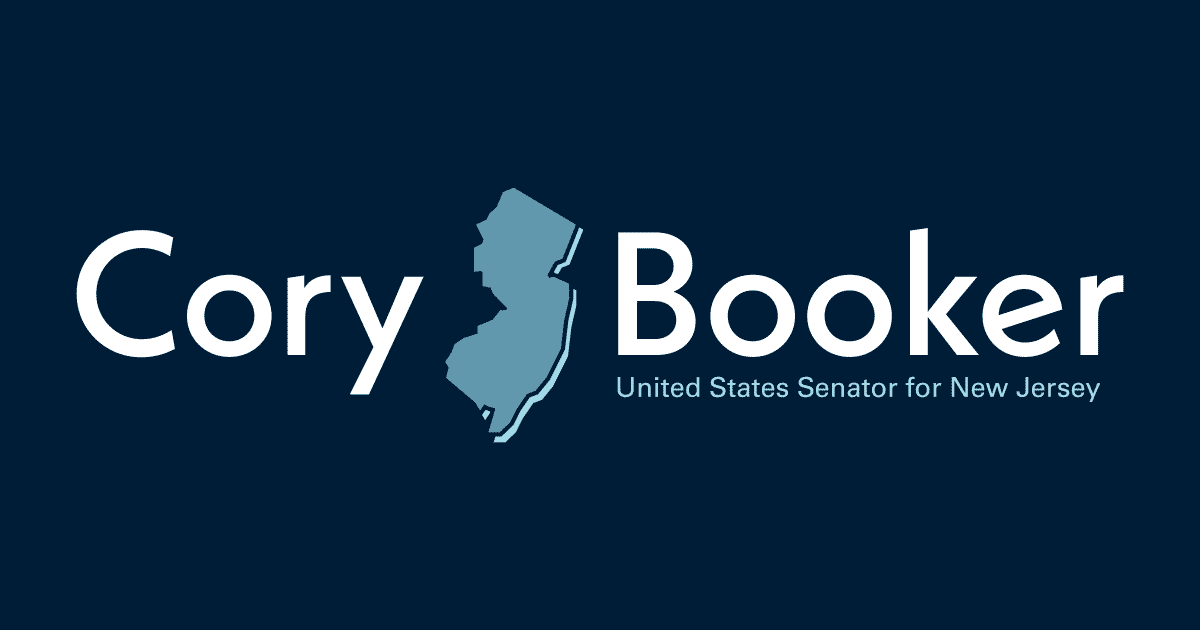Source: United States Senator for New Jersey Cory Booker
Newark, NJ – U.S. Senator Cory Booker (D-NJ) joined EPA Administrator Michael Regan, New Jersey Department of Environmental Protection Commissioner Shawn LaTourette, Newark Mayor Ras Baraka, Ironbound Community Corporation, and New Jersey Environmental Justice Alliance for an environmental justice tour of the Ironbound neighborhood in Newark. The tour was followed by a roundtable discussion on federal policies to address issues affecting environmental justice communities.
“Since my early days as a tenant rights lawyer in Newark, I’ve seen how underserved communities and communities of color bear the burden of legacy pollution, toxic Superfund sites, and the lack of clean air or water,” said Sen. Booker. “I was proud to host Administrator Regan, Commissioner LaTourette, and local environmental justice advocates for this important tour and discussion that underscores the urgent need to address stark environmental inequalities and racism. Such discussions between local, state, and federal entities are essential to ensuring residents in overlooked communities across the United States are given the tools, resources, and funding they need to achieve environmental justice.”
“As EPA Administrator, I understand how important it is to be on the ground, to listen, and to learn from our communities on the frontlines of pollution,” said U.S. EPA Administrator Michael S. Regan. “It’s critical that we understand people’s lived experiences, and that these impacts on communities are at the forefront of EPA’s decision-making. I’m grateful to Senator Booker for his partnership, steadfast leadership, and for providing me an opportunity to see firsthand the environmental injustices facing the Ironbound community in Newark. By listening to our communities of color and working hand in hand with our state and local partners, we will ensure that all people in this country realize the full protections of our environmental laws and policies.”
“Thanks to the partnership of our community leaders, advocates, and legislators, New Jersey is now home to the most empowering environmental justice law in the country,” said New Jersey Commissioner of Environmental Protection Shawn M. LaTourette. “The Murphy Administration is grateful that US EPA Administrator Michael Regan and Senator Cory Booker are visiting New Jersey communities and creating an important forum where our residents can share their environmental challenges and where we can recommit, at all levels of government, to furthering the promise of environmental justice.”
“It was an honor and a privilege to welcome EPA Administrator Michael S. Regan to Newark today,” said Mayor Baraka. “As a statewide and regional hub of industry, commerce, innovation and energy, the impact of the legacy of environmental contamination is real and present in our community. Newark has long been recognized as an environmental justice community due to the high number of polluting facilities we host, and related environmental health impacts suffered by our residents. We look forward to continuing our strong partnership with EPA Administrator Regan and his office to prioritize Newark children and families first, move Newark forward and improve the environmental health and quality of life in all our neighborhoods.”
“We are thankful the Administrator and his staff are getting on the ground to see the problem for themselves,” said Maria Lopez-Nunez of the Ironbound Community Corporation. “Frontline communities across the country need to be seen but more importantly we must be heard. Living with the day to day failures of our system gives our communities unique expertise that we are offering this administration and our representatives. We have a once in a lifetime opportunity to both address the climate crisis and the deep inequalities across the country. We hope this is not a stop on a tour but the beginning of a deep relationship towards justice.”
“I applaud the EPA on tackling air pollution from heavy duty vehicles and hope that we see similar action to address diesel emissions from rail yards which are a major contributor to people’s exposure to toxic air pollution in Newark’s port adjacent communities,” said Melissa Miles, Executive Director of the New Jersey Environmental Justice Alliance. “We hope that Administrator Regan’s visit to Newark brings increased attention to the need for regulation of railyard emissions as part of the larger effort to eliminate air pollution and greenhouse gases from the logistics industry.”
“This visit comes at a critical moment when the crisis of climate change and environmental injustice is having life and death consequences for communities like Newark,” said Ana Isabel Baptista, Assistant Professor of The New School University. “We thank Administrator Reagan and Senator Booker for their visit and ask that they continue their commitment to make targeted investments and reduce cumulative pollution in Newark and EJ communities throughout the US.”
“We welcome the opportunity to speak with Administrator Reagan and Senator Booker about the need for climate change mitigation policies that guarantee emissions reductions in environmental justice communities, as well as a substantive federal cumulative impacts policy for these same communities,” said Nicky Sheats, Ph.D, Director of the John S. Watson institute for Urban Policy and Research at Kean University.
Throughout his time in public service, Booker has prioritized environmental justice causes, including championing the cleanup of the polluted Passaic River and co-founding the Senate’s first-ever Environmental Justice Caucus. This month, Booker reintroduced the Environmental Justice Act of 2021, which would require federal agencies to mitigate environmental injustices and strengthen legal protections offered to those affected by environmental injustices. Earlier this year, Booker also announced the reintroduction of his Environmental Justice Legacy Pollution Cleanup Act, legislation that would invest over $200 billion to clean up legacy pollution that has disproportionately harmed communities of color, indigenous communities, and low-income communities for generations.
##
